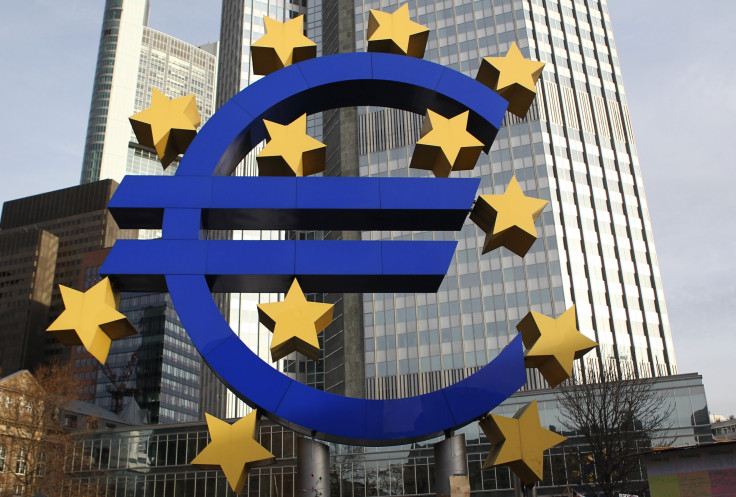Euro, Dollar Slip As Ultra-Loose Monetary Policy From The ECB And Fed Weighs

The euro continued to trade lower against major currencies on Tuesday after European Central Bank, or ECB, President Mario Draghi said that further support would be provided to European banks if necessary and maintained that interest rates would remain at record lows in the near future.
Draghi, while speaking about the 17-nation euro zone's economy during a testimony before the Committee on Economic and Monetary Affairs in Brussels, said that the central bank will extend another round of long-term refinancing options, or LTRO, to help the banking sector avert a credit crunch and keep interest rates down.
“We are ready to use any instrument, including another LTRO if needed, to maintain short-term money market rates at a level which is warranted by our assessment of inflation in the medium-term,” Draghi said, according to The Telegraph.
His remarks weighed down the euro, which had gained in early-morning trade on Monday after German Chancellor Angela Merkel's conservative party won general elections on Sunday.
"With euro at $1.35, the pressure on the ECB to be as dovish as possible is really accelerating," Boris Schlossberg, managing director at BK Asset Management in New York, told Reuters.
The euro, which lost more than 0.2 percent to hit 1.3480 against the dollar during U.S. morning trade on Monday ended the day at 1.3493. On Tuesday, the euro was trading at 1.35 against the dollar in afternoon trade in Asia. The euro, which on Monday slid 0.39 percent against the pound to an intra-day low of 0.8414 was on Tuesday trading at 0.8416. Against the yen, the single currency fell 0.85 percent to trade at 133.22 on Monday and on Tuesday, it was trading at 133.6.
The dollar, weighed down by concerns about the U.S. Federal Reserve’s stance on its asset-purchase program, slipped 0.48 percent on Tuesday to 98.875 from Monday’s 99.36.
Draghi’s comments came after two private surveys showed that the euro zone's manufacturing sector grew less than expected in September, but service sector activity rose to a 27-month high reinforcing signs of sustained growth in the sector.
William Dudley, president of the Federal Reserve Bank of New York, in a speech on Monday defended the Fed’s decision to delay tapering of its $85 billion-a-month bond-buying program. Referring to a looming showdown between the Congress and President Barack Obama over the debt ceiling issue, he said that the fiscal and economic conditions prevailing in the U.S. economy warrant the continuation of its ultra-loose monetary policy.
The Fed’s stance has pinned down the dollar, which traded flat against a basket of currencies at 80.434 on Monday. The Australian dollar rose nearly a full U.S. cent to $0.9426 overnight, according to a Reuters report.
"The fact is that Fed officials remain as data-dependent as ever; if we see big surprises out of U.S. nonfarm payrolls data and/or CPI inflation reports, expect big dollar moves," David Rodriguez, a quantitative strategist at DailyFX in New York, wrote in a note, Reuters reported. "In the meantime, we think it's unlikely that the dollar breaks to fresh lows."
© Copyright IBTimes 2024. All rights reserved.












